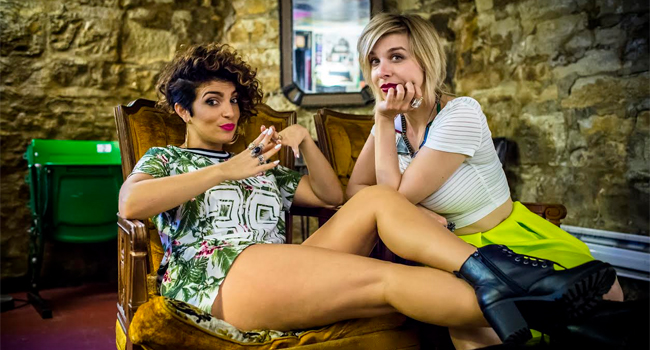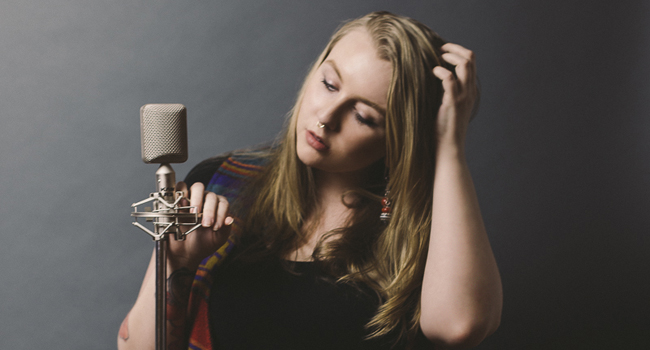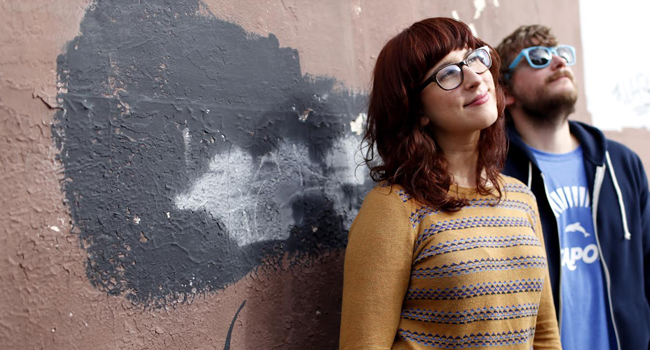Chicago natives Billy Jesus, Brian Suarez, Bobby Is, and Stephen Kraniotis formed Audiences two years ago. Last month, Audiences celebrated the release of its self-titled EP by headlining a show at the Metro. Pop ‘stache visited Billy and Brian’s apartment/practice space in Belmont to chat with the band.
Pop ‘stache: Why did you choose Audiences as your band name?
Brian Suarez: It was the first song we ever wrote.
Stephen Kraniotis: It was a thought of a lyric of a song, which was named Audiences.
BS: We didn’t want any separation between us and the audience.
Bobby Is: Before we had any huge shows or anything, we would practice, then more people would show up to practice and practice turned into a party, so it kinda grew as a collective thing.
P ‘s: Your music doesn’t really fit one genre, so how would you describe it?
SK: I just tell people it’s an indie-rock kind of thing.
Billy Jesus: I think it’s fun to mess with people and have part of the music be something they’re familiar with, then stop it entirely and have something new that maybe they don’t listen to, but someone else in the crowd does.
SK: I think that’s the coolest part of it.
I like that people can’t put their finger on us. You know, doing something different is what you strive for, so it’s good to be indescribable in a sense.
BI: We never set out to make a sound for ourselves, really. I come from a death metal background and we all have different backgrounds, so it’s kinda like the elements just get blended in the blender and out comes really intense drums over really percussive vocals and things like that. It’s just snippets of everything to make one big noise.
P ‘s: Could you tell me about your songwriting process? What comes first, the lyrics or the music?
BJ: I can’t just write a chord progression without a melody. I guess I can, but I’ll just play that chord progression till I have a sort of melody. Most of the time it’s just whatever’s at the top of my head, and I think there’s something special about that.
It’s not fully conscious or whatever. It just comes, it’s there, and then I try to write around whatever those first words are.
BS: And the songs are normally written right here where you’re sitting.
SK: It’s just a jam at first, then we play around, get the progressions, you know, adding changes. The initial part kind of comes from there and then we glue it and stitch it together to get the final structure. Sometimes, after one practice we have a song finished. Midnight Hound was just done the first time we recorded it.
BI: The best example is Haunted, the last track on the album. That was done in one day’s practice and we recorded it the next day.
P ‘s: You guys just released your EP last month. What’s the next step for you?
BS: We’re always writing new songs and we’ve got a bunch of songs that we want to record as soon as possible. This is the time when we network and try to get people to help us out to get us to those venues that we’ve never been to before.
SK: That’s the big thing. We’ve never had anything and it just took so long. We started basically this time of year two years ago.
BJ: Metro was a pretty big deal for us. We’ve never had that many people come out before, so it was nice.
BS: It feels like we just work jobs though. I don’t know what we wanna do next next. We’ve had some missed practices and stuff because we don’t have a next show worked out, but we keep writing and keep looking around for recording, so that’s where we’re at right now.
P ‘s: Speaking of your jobs, I know Billy’s a paralegal, but what do the rest of you do for a living?
BJ: Oh, this is a really fun game.
BS: I live with Billy and I work at Northwestern. I do IT support for the president.
BI: Of the United States?
BS: Of Northwestern University.
BI: I’m an architect. Right now, I do healthcare, so hospitals and that stuff. I help people get better, very indirectly.
SK: I also work at Northwestern, but the Chicago campus. I do neuroscience research, so I work around mice and stuff.
P ‘s: None of those professions are ones I would associate with band members.
BJ: Absolutely not!
BS: That’s a really tough struggle we get through. It’s tough having these full-time jobs because being in a band is like a marriage. You’ve gotta work at it.
BI: It’s like having three more girlfriends.
SK: We would quit our jobs in a heartbeat, though.
BS: Yeah, that’s not even a question.
P ‘s: What was the best experience with this band for each of you?
BJ: I’m a really antsy guy, so before shows, I get really nervous and all that shit. At the beginning of the Metro, I had no idea how many people were gonna be there and what the hell was gonna happen, so I was really worried.
When we took the stage that night and there were that many people out there something in my brain kind of clicked and I was like, “Whoa, this is what it’s like! This is the alternate life.”
BI: I’ve got one. So, there are good shows and there are bad shows, and maybe as an audience member (no pun intended), you don’t realize that because you’re just drinking and having fun. But the bad shows are so quick when you’re playing and you’re just thinking, “That sucked. I wanna go home,” but you still have to be excited, but the good shows… There are lights everywhere, and smoke and mirrors, and the songs take forever to get through. You just fall into the zone and you don’t see the lights moving anymore, you just feel the music.
BS: Okay, I’ve got one. I was thinking about this the whole time you guys were talking.
SK: I hope it’s the exact same thing because you weren’t listening.
BS: So, for thirteen years of my life, I’ve played guitar and I wanted to be a guitarist, but then in this band we had three guitarists. The minute I decided that I wanted to play bass, I knew that we would be a band and that we could probably do it, because of the chemistry between us. So when I went out and bought my first bass guitar, that experience was the one that was probably the biggest. You know, that’s a big commitment, to switch gears to be in the rhythm section of the band.
SK: It’s just been weird all along. We didn’t go in with any expectations whatsoever. We didn’t think we’d be doing this right now. After college, I got a job, it was chill, and I had just broken up with my girlfriend at the time and so did Bob, so we had all this free time. They asked us to play music, so we started playing, we did a couple of shows at The Mutiny, and then two shows later we’re at Schuba’s.
BJ: Then a few weeks later, we headlined Lincoln Hall on a Saturday night. A bunch of people came out. We were just young dudes who didn’t know what we were doing. We were expecting maybe 25 people, but then the room was nice and full. It was crazy.
BI: In our defense, we’re still young dudes who don’t know what we’re doing.




